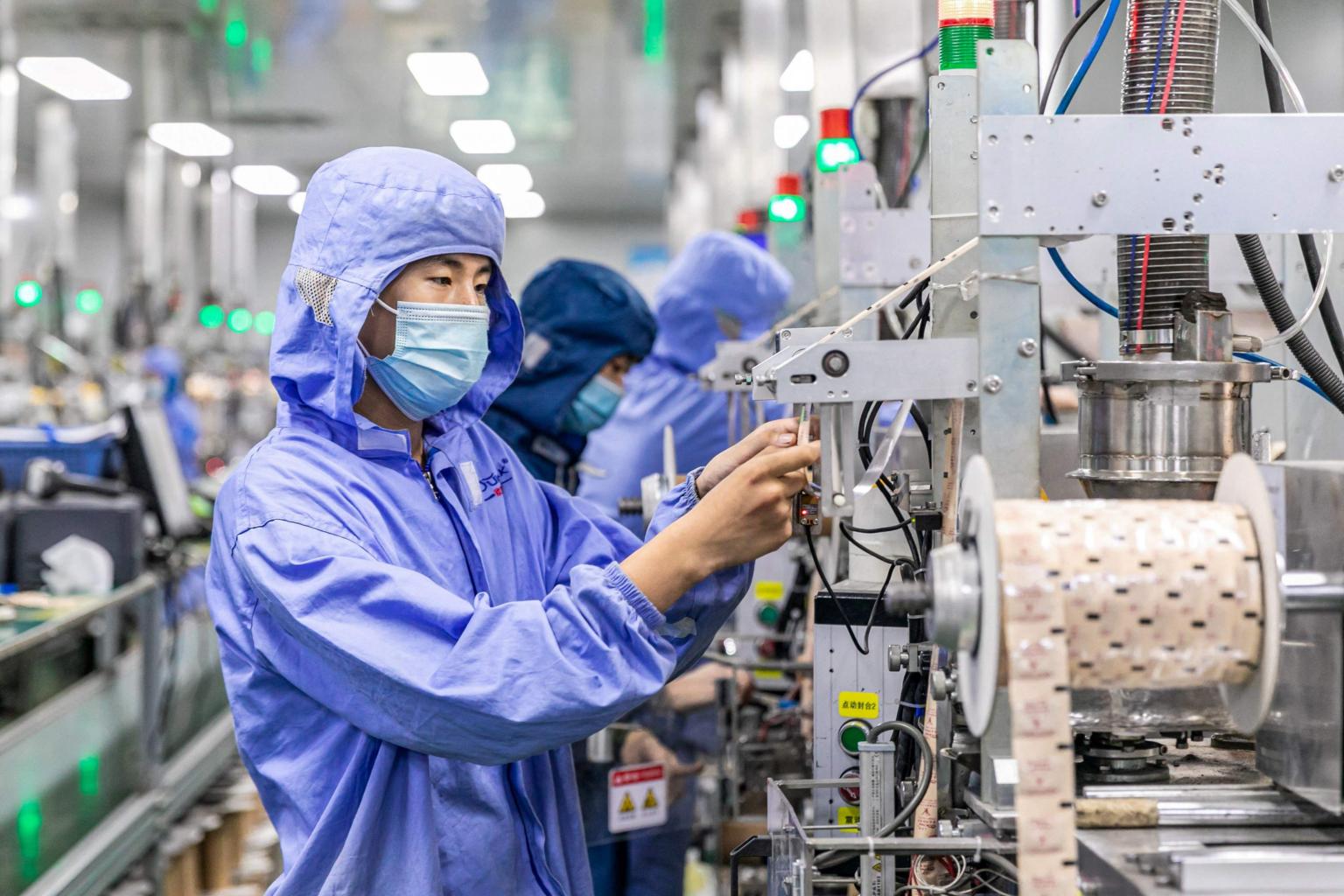China's factory output, retail sales slow, miss expectations
Sign up now: Get ST's newsletters delivered to your inbox

Industrial production in the world's second-largest economy increased 6.4 per cent year on year in July.
PHOTO: AFP
BEIJING (REUTERS) - China's factory output and retail sales growth slowed sharply and missed expectations in July, as new Covid-19 outbreaks and floods disrupted business operations, adding to signs the economic recovery is losing momentum.
Industrial production in the world's second-largest economy increased 6.4 per cent year on year in July, according to data released by the National Bureau of Statistics (NBS), against expectations for 7.8 per cent growth and after rising 8.3 per cent in June.
China's economy has rebounded to its pre-pandemic growth levels, but the expansion appears to be losing steam as businesses have grappled with higher costs and supply bottlenecks while new Covid-19 infections in July prompted some local authorities to lock down and temporarily suspend business operations.
Data earlier this month also showed export growth, which has been a key driver of China's impressive rebound from the Covid-19 slump in early 2020, unexpectedly slowed last month.
Consumption remained weak with retail sales rising 8.5 per cent year on year in July. Analysts had expected retail sales to increase 11.5 per cent after a 12.1 per cent uptick in June.
NBS spokesman Fu Linghui said at a briefing on Monday that China's recovery remains uneven due to sporadic Covid-19 outbreaks and natural disasters. "The domestic economic recovery still faces many challenges, and contraints on production increased," said Mr Fu.
China has tightened social restrictions to fight its latest Covid-19 outbreak in several cities, hitting the services sector, especially travel and hospitality in the country.
The country has also faced severe weather in several provinces, with record rainfall in Henan province last month causing floods that killed more than 300 people.
China's crude steel output fell in July to the lowest monthly level since April 2020 as the authorities stepped up production controls.
A growing number of analysts have been cutting their third quarter growth estimates for China. The country's gross domestic product expanded 7.9 per cent in the April-June quarter from a year earlier.
In July, the People's Bank of China reduced the amount of cash banks must hold as reserves, and many analysts expect another cut later this year to support growth amid signs of increasing pressure on the economy.
Fixed asset investment grew 10.3 per cent in January-July from the same period a year ago, compared with an 11.3 per cent rise tipped by a Reuters poll and a 12.6 per cent increase in January-June.
Fixed asset investment grew 10.3 per cent in January-July from the same period a year ago, compared with an 11.3 per cent rise tipped by a Reuters poll and a 12.6 per cent increase in January-June.
Private sector fixed-asset investment, which accounts for 60 per cent of total investment, grew 13.4 per cent in the first seven months of the year, compared with a 15.4 per cent gain in the period from January to June.
Property investment, a crucial growth driver of China's recovery from Covid-19 disruptions, grew 12.7 per cent in January to July, versus 15 per cent rise in the first half of this year.


